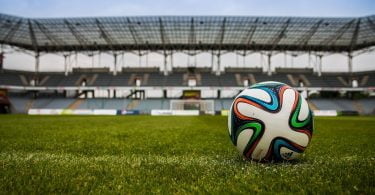Big, crunching tackles. Blood sweat and tears. Life or death. This is what you would associate with footballs most eagerly anticipated game, the local derby.
Big, crunching tackles. Blood sweat and tears. Life or death. This is what you would associate with footballs most eagerly anticipated game, the local derby. However, after last weekend’s proceedings, and the past few seasons, many people have questioned if derby games really are what they used to be.
Die hard fans wait for this fixture to come all season long, they can’t sleep the week leading up to it, all they can think about is the game. It’s all about pride. For someone born and bred in Liverpool, take Steven Gerrard, Jamie Carragher, they know exactly what the Merseyside derby is all about. The same goes for the Tottenham fan who has had a season ticket since the age of ten, the North London derby is the epitome of their season. Yet, it seems that the players of today don’t have the same connection with derby as their loyal supporters do, and maybe understandably so.
It is very rare in the modern game that you have local players playing for their hometown club, not with the money teams have now, as it is so easy to sign players and get rid of them. In turn, you lose players that have grown up in the area and have a real passion and love for the club that could be brought into the derby. But, due to the competitive nature of modern football, they are replaced by a better, foreign player. Gone are the days of the great European Cup winning Celtic side that all lived within ten miles of the ground. Back then the sense of togetherness, family and a genuine understanding of the club meant that derby games could never be matched again.
It is hard for derby games to live up to the hype of the fans, as the majority of the teams are mainly composed of foreign imports. The passion for the derby, the experience of the derby, the love for the derby just isn’t there. Or so it seems. The majority have not experienced football like this of the Premier League in their careers and struggle to keep up in a normal league game, let alone a derby game. They are not used to the physical aspect that is posed by the Premier League, again reducing the aggression and tough tackling. When the teams are predominantly made up of foreign players, you can see that the multiplier effect ensues and the game becomes more timid – which many people have commented on previously of the modern game.
The laws of the modern game also play their part. Referees now are so vigilant and with them constantly being analysed they can’t make a wrong decision – the media get on their back, along with the players, the fans and their bosses reviewing their game. Many of us like to see a physical game played in a fair way, but it seems the rules and regulations of FIFA and the FA don’t see it this way, reducing the physicality and contact of the game. We must also understand however the difficulty of refereeing a game at such a pace, inevitably mistakes will be made.
Not necessarily to the extent and frequency that we saw with Martin Atkinson last week at Goodison Park, the comments of David Moyes summed his performance up ‘I just thought the sending off ruined the game. You get lots of questions from people asking about derbies, tackles and sendings off but that wasn’t even a bad tackle’.
The fans bring an element to the derby that has recently been lost. Love. The fans love the club like no one else – they travel hundreds of miles to Newcastle away on a Tuesday night in the middle of winter, they pay their hard earned wages to see the team they adore. This commitment transpires into the atmosphere they create on derby day. This atmosphere will never be lost, the excitement of the game, the big tackles, the rivalry between the players might go, but for the fans it will always remain there. No other atmosphere and anticipation in football can compare to that of derby day, and that is why it will always remain the same.








